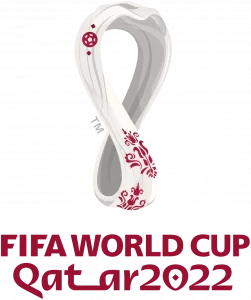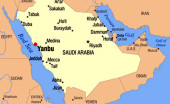Re The UN General Assembly Speaker Schedule is Here! I note that whoever will be speaking for Canada this year…
Qatar FIFA World Cup 2022
Written by Diana Thebaud Nicholson // December 14, 2022 // Middle East & Arab World // Comments Off on Qatar FIFA World Cup 2022
The Guardian: World Cup 2022
 The Atlantic newsletter The Great Game
The Atlantic newsletter The Great Game
Qatar-Gate
Diane Francis: The final game in the World Cup nears, but its host nation, Qatar has already clearly come out the loser. The Emirate (pronounced Kuh Taar) spent a staggering $200 billion on stadium and logistical infrastructure, but also, it is alleged, handed out tens of millions more in questionable payments to football’s governing body, FIFA, as well as to members of the European Parliament to overlook its human rights violations. Qatar is also in the middle of another controversy involving its financial dealings with Jared Kushner, when he was a White House advisor, that are now under investigation by Congressional committees in Washington. In summary, this tiny Arab nation has certainly made a splash, but from now on will be at the center of three of the world’s biggest scandals. Clearly, the strenuous efforts by its ambitious Emir to garner world attention have worked, but not favorably. Instead, Qatar is now in the running to win the 2022 World Cup for Corruption
… The desert nation is fabulously rich because beneath its sand lies the world’s third-largest natural gas reserves and oil reserves. And beginning in the 1970s, the country harnessed this endowment and has become one of the world’s largest exporters of liquefied natural gas, or LNG.
The Emir is leader for life and a dictator. A charming, British-educated man with a harem of three and 13 offspring, he has raised his nation’s profile and influence through energy trade, investment clout, media ownership, and international sports networking. For instance, his pledge to spend gigantic sums on World Cup infrastructure landed him the gig. He also hobnobs with oligarchs and tycoons as owner of major European soccer team, Paris Saint-Germain Football Club. Qatar’s importance geopolitically has been leveraged because it built the largest military base in the Middle East for the American military, which has been used as a staging ground for the Iraq, Afghanistan, and Kuwaiti invasions, among other adventures.
The country is not a democracy, has no free press, but has global influence through its ownership of worldwide broadcast network, Al Jazeera. The Emir also heads the Qatar Investment Authority board of directors, with $450 billion in assets, which owns large stakes in Barclays Bank, Volkswagen, Vivendi, Royal Dutch Shell, and Harrods, among others.
25 November
The Qatar World Cup Exposes Soccer’s Shame
The absurd spectacle of a tiny Gulf petrostate hosting the world’s premier tournament reveals the ugly side of “the beautiful game.”
By Tom McTague
(The Atlantic) Qatar hosting the soccer World Cup is like Donald Trump becoming president of the United States. … Qatar will forever have been the host of the 22nd FIFA World Cup, the greatest absurdity in the history of the sport.
Even to recite the details of the backstory feels darkly grim. In 2010, soccer’s world governing body, FIFA, awarded the right to host the world’s most popular and prestigious sporting event to a tiny Middle Eastern autocracy with a population of barely 3 million. Qatar had never even played in a World Cup before, let alone hosted one, and it made a singularly unsuitable venue: In summer, when the tournament has always been held, the temperatures are so hot, soccer cannot safely be played at all. To hold 90-minute matches in the desert at the height of an Arabian summer is self-evidently ludicrous.
This is why, for the first time ever, the tournament is taking place in November and December, which is midway through the European soccer season. This is as preposterous as running the World Series over Christmas week—in Jeddah. They might as well have handed Dubai the rights to the Winter Olympics.
But this idiocy glosses over the true ignominy. Qatar might now be home to about 3 million people, but the proportion of actual Qatari citizens who live there is little more than 10 percent. The rest comprise some very rich expatriates of other nations and a huge army of poor migrants who do most of the work. When Qatar won the tournament, it did not have the infrastructure, weather, or fan base to justify being awarded the World Cup. But it was very, very rich.
More than a one-off scandal, the World Cup in Qatar is a fable of the world we live in—and not just the world of soccer. Qatar 2022 is what happens when a corrupted international organization with huge power and little accountability is put in charge of things that matter; when democracies are willing to sell themselves, their institutions, and even their culture to the highest bidder; and when whole economies become dependent on the exploitation of cheap, globalized labor and unregulated capital.
Ode to Not Watching the World Cup
This is an event of such astoundingly obvious wrongness that doing the right thing is easy.
By James Parker
These games are a moral botch.
How hard is it not to watch?
This time only, you win the prize
by averting your eyes.
25 November
Soccer may be making headlines for Qatar, but the controversies aren’t going away
James Griffiths, Asia correspondent
(Globe & Mail) There is a strange sense of unpreparedness around this competition, despite Qatar having spent 12 years and tens of billions of dollars to get ready for the World Cup. Some fans have struggled with ticketing issues, and half-finished construction is a common sight around fan zones and accommodation, much of which will be torn down at the end of the tournament.
One thing the Qataris should have been ready for was the criticism, over migrant worker rights and the emirate’s criminalization of homosexuality, which has dominated World Cup coverage from the day the Gulf state secured hosting rights in 2010. But that, too, seems to have taken authorities in Doha aback, especially as the clamour has continued beyond the first game, defying FIFA president Gianni Infantino’s prediction that “as soon as the ball rolls, people will concentrate on that because that’s what people want.”
As the first week of the tournament draws to a close in Doha, the soccer is certainly taking headlines – Saudi Arabia’s and Japan’s surprise wins, Cristiano Ronaldo setting records – but the politics isn’t going away.
After FIFA threatened to give European players yellow cards if they wore rainbow “One Love” armbands during games, the German team posed for a match photo with their hands over their mouths and rainbow laces, while Wales has switched all the flags on its training ground with rainbow ones. Multiple European sides said they may take FIFA to the Court of Arbitration for Sport over the ban, which has attracted criticism from players and fan groups.
22 November
Iran’s brave and powerful gesture is a small wonder from a World Cup of woe
An authentic football match appeared after the opening’s cold theatre but its most important moment was Iran’s defiant stand against singing the national anthem
Fifa and Qatar in urgent talks after Wales rainbow hats confiscated
Fifa reminds Qatar of assurances given before World Cup
Governing body understood to be deeply concerned
The Guardian also understands Fifa is deeply concerned about several incidents around the match, including Welsh FA staff and fans being confronted by security for bringing the hats into the Ahmad bin Ali Stadium and a US fan with a rainbow flag being confronted on the metro. The Qatari Supreme Committee is expected to issue a statement in the next 24 hours.
21 November
Qataris are showing FIFA just who is in charge at men’s World Cup
After Robert Caro finished The Power Broker, his monumental biography of city planner Robert Moses, he remained fascinated by the subject of strength. He decided to write next about President Lyndon Johnson, because Caro couldn’t imagine a greater demonstration of influence and authority.
Today, Caro might have chosen to document Qatar’s World Cup. In the 12 years since the desert kingdom won the right to host it, the balance of power has constantly shifted within and without the most beloved game on Earth.
In the anxious hours before England played Iran in Doha on Monday, it became clear who, in the end, wields all of it: the Qataris.
Back in 2010, FIFA held the cards — more specifically the 22 members of its former executive committee, the men who decided where each World Cup would take place. Half of them have since been implicated in bribery and corruption plots, including Sepp Blatter, FIFA’s then-president.
They picked Qatar, having received various guarantees in public and brown envelopes in private
20 November
Fans across the Middle East celebrate historic World Cup moment
(Al Jazeera) Qatar marked its FIFA World Cup debut with a defeat to Ecuador on Sunday, but in becoming the first nation in the Middle East to host the tournament, it has inspired a wave of pride across the region.
From cafés in Erbil to pubs in Istanbul and stadiums in Gaza City, excited onlookers gathered around television screens ahead of the opening fixture of a tournament some hope will shatter stereotypes of the Islamic world.
Spectacular opening ceremony kicks off World Cup in Qatar
Fireworks, singing, dancing and an emphasis on Qatari culture mark the start of football’s biggest event.
19 November
How Qatar won the World Cup
Despite more than a decade of critical coverage, the Gulf country has emerged stronger than ever after an unrivaled nation-building project.
(Politico Eu) Despite more than a decade of critical coverage — which at first zeroed in on the bribery and corruption embedded in the bidding process, and then highlighted Qatar’s regressive labor and human rights laws — the Gulf petro-monarchy has emerged stronger than ever after an unrivaled nation-building project.
The World Cup, which starts Sunday, has helped accelerate Qatar’s development, supercharging the construction of high-end stadiums, gleaming shopping malls, five-star hotels and a world-class airport — and enabled it to wield both geopolitical and sporting influence.
FIFA chief accuses Qatar critics of double standards
Infantino says he raised the issue of migrant workers with the Qatari authorities while European companies did not.
In a press conference on Saturday, the FIFA chief said: “Today I feel Qatari. Today I feel Arab. Today I feel African. Today I feel gay. Today I feel disabled. Today I feel a migrant worker.”
Fans arriving for Qatar World Cup find searing heat, heavy security and a last-minute booze ban
Twenty-four hours ahead of the 2022 FIFA World Cup, fans are pouring in to the tiny Persian Gulf state of Qatar, though human-rights concerns and questions over how a conservative Muslim country will deal with the influx of foreigners continue to dog the tournament.
The topic on everyone’s lips Saturday was the Qatari authorities reversing a decision to allow beer to be sold at stadiums, a last-minute move that will limit the sale of alcohol to specially-designated fan zones. Speaking to the press early in the day, FIFA president Gianni Infantino downplayed the issue, saying “if for three hours a day you cannot drink a beer, you will survive.”
But the rule change has renewed concerns over whether Qatar will backtrack on other commitments, such as welcoming LGBTQ people despite a ban on homosexuality in the country.
Why Qatar is a controversial host for the World Cup
(NPR) The selection of Qatar to host this year’s FIFA World Cup brought cheers to the streets of Doha in a celebration of the first edition of the tournament to be held in the Arab world.
But the choice, made in 2010, also sparked instant criticism – over the logistics of holding a sporting event in a country where summertime temperatures regularly top 100 degrees; over allegations of bribery and corruption among FIFA officials who voted for Qatar; and over concerns about human rights abuses that have persisted in the years since.
Now, with the World Cup days away, the Gulf country is expecting the arrival of more than a million fans. And billions more will tune in to watch the tournament’s 64 games. Yet the controversies have not subsided.
[FIFA’s former leader says making Qatar a World Cup host was a mistake]
Qatar is the smallest nation to ever host the World Cup. … When it won selection in 2010, Qatar lacked many of the stadiums, hotels and highways needed to stage the tournament. To build them, the country turned to its massive population of migrant workers, who make up 90% or more of its labor force. (Only about 300,000 of Qatar’s residents are Qatari citizens. Far outnumbering them are migrant workers whose visas are tied to their employment, a system that is common in the Middle East.)
Working and living conditions for those migrant workers were frequently exploitative and dangerous. A 2021 investigation by the Guardian found that more than 6,500 migrant workers have died in Qatar since World Cup awarded – Guardian analysis indicates shocking figure over the past decade likely to be an underestimate found that more than 6,500 migrant workers from five south Asian countries had died in Qatar since 2010 from all causes – workplace accidents, car crashes, suicides and deaths from other causes, including the heat.)
Other human rights abuses
This week, Human Rights Watch urged journalists to look beyond soccer by publishing a 42-page report summarizing what it described as “the numerous human rights concerns surrounding Qatar’s preparations for the 2022 World Cup.”
Qatar’s penal code criminalizes sex outside of marriage, which has led to the prosecution of rape victims. And homosexuality is effectively criminalized. …
Allegations of bribery and corruption
The selection of Qatar as World Cup host has long been dogged by allegations of bribery and corruption.
The selection was announced in 2010 after a series of votes by FIFA officials. Qatar won out over bids by the U.S., South Korea, Japan and Australia.
Over the years, various officials, both from FIFA and other organizations, have been accused of accepting or soliciting bribes to guide the World Cup to Qatar.
16 November
HMS Wag: The blinged-up floating palace in Qatar for England’s wives and girlfriends
With a crystal staircase, full butler service and 13 restaurants on board, unthinkable luxury awaits the national squad’s partners during the World Cup, far from the paparazzi – and the authorities
17 November
Qatar claims the 2022 FIFA World Cup is carbon neutral. It’s not.
A new report says stadium construction is largely to blame
(Grist) The opening game of the 2022 FIFA World Cup is just days away, and all eyes are on host country Qatar, which has been getting ready to host the international soccer tournament since 2010. The preparations for the event, which organizers pledged would be “carbon-neutral,” have stirred up a significant amount of criticism related to worker exploitation and alleged human rights violations. Now, a climate watchdog group says the tournament’s organizers, which include representatives from FIFA and the Qatar government, misled the public by undercounting carbon emissions in one key area: stadiums.
Qatar has been on a decade-long World Cup construction boom, building seven new stadiums, 30 practice facilities, thousands of hotel rooms, and an expansion to the Doha International Airport
10 November
Qatar and a World Cup controversy
(CBC Front Burner) This month’s FIFA World Cup is a big one for Canada. It’s the first time in 36 years that our men’s team has qualified to compete, and the last World Cup before Canada shares hosting duties in 2026.
But in the decade since Qatar won its bid to host this year’s tournament, allegations of bribery, discrimination and human rights abuses have threatened to overshadow the game.
As players and fans grapple with how to protest, we’re joined by Roger Bennett of the Men in Blazers podcast. He’s just co-authored a new book called Gods of Soccer and is co-hosting World Corrupt, a podcast that dives deep into FIFA corruption and the World Cup in Qatar.



